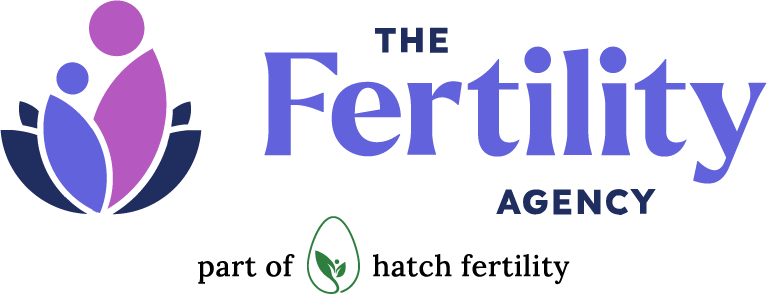When it comes to family planning, you might find yourself considering options like egg freezing and egg donation. What are the differences between the two? Why would you choose one over the other, and how do you know which one is right for you?
Egg freezing, also known as oocyte cryopreservation, involves preserving a woman’s eggs for potential future use. People often choose egg freezing to:
- Gain control over their reproductive timeline
- Preserve fertility in the face of medical treatments
- Plan for single parenthood
- Maintain a genetic family connection
- Optimize the quality of eggs for future use
Egg donation involves using eggs from a donor to achieve pregnancy. Some women pick egg donation when they have trouble having a baby on their own due to issues like fewer eggs or genetic concerns. It’s an option for those who are turning to fertility treatments to help them have a family, especially when using their own eggs isn’t possible.
Now that we understand what each option is, what are the main differences between the two? Let’s dive deeper.
The Upsides of Egg Freezing
Preserving your fertility: Egg freezing allows you to preserve your fertility, offering flexibility when you decide to start a family.
Control over your reproductive timeline: With egg freezing, you have control over when you want to pursue parenthood. It empowers you to align family planning with your personal and professional goals.
Maintaining a genetic connection: When you’re ready to use your frozen eggs, they can be fertilized, maintaining a genetic connection between you and your potential child.
The Downsides of Egg Freezing
No guarantee of success: While advancements have been made, success is not guaranteed. It’s important to be aware that not all frozen eggs will result in a successful pregnancy.
Financial considerations: Egg freezing comes with costs. Understanding the financial investment, including storage fees, is crucial for informed decision-making.
In the United States, the average cost for a single cycle of egg freezing ranges from $5,000 to $15,000. This cost usually covers the initial consultation, ovarian stimulation medications, egg retrieval procedure, and the first year of egg storage. Beyond that, annual storage fees can range from $500 to $1,000 per year.
The Advantages of Egg Donation
Higher success rates: Egg donation often boasts higher success rates, thanks to the use of eggs from young and healthy donors.
Overcoming genetic challenges: For those with genetic concerns, egg donation provides a way to overcome potential challenges and achieve a healthy pregnancy.
Varied donor options: Egg donation offers a range of donor options. You can choose a donor based on various criteria, tailoring the process to your preferences.
The Drawbacks of Egg Donation
Lack of genetic connection: An important consideration is the lack of a genetic connection between you and the child. For some people, this aspect is emotionally challenging.
Complex decision-making: Choosing an egg donor involves complex decision-making. Consider personal preferences, values, and your comfort level with using eggs from a stranger.
Financial considerations: For some people, using an egg donor isn’t financially feasible. In the United States, the average cost for an egg donation cycle typically ranges from $25,000 to $40,000.
This cost often covers the donor’s compensation, medical and psychological screenings, legal fees, medications for both the donor and the recipient, and the medical procedures involved in the egg donation process.
Factors to Weigh in Your Decision
As you make a decision between egg freezing and egg donation, consider weighing the most important factors, including:
- Health considerations: Take into account your current health and any medical conditions. If preserving your own eggs is crucial for medical reasons, egg freezing might be a suitable option.
- Age and ovarian reserve: Age plays a significant role in fertility. If you’re older, your ovarian reserve (the number and quality of your eggs) may be diminished. Understanding how age impacts fertility can guide your decision toward the most viable option.
- Support system: Consider your support system. If having a genetic connection with your child is paramount, discuss your decision with family and friends who can offer guidance and understanding.
- Ethical and moral values: Reflect on your ethical and moral values. Some people may have strong feelings about genetic connections, while others may prioritize the act of giving a child a loving home, regardless of genetic ties.
- Success rates: Investigate success rates for both egg freezing and egg donation. Understanding the statistical likelihood of success in each method can help manage expectations and inform your decision.
- Availability of donors: For those considering egg donation, it’s important to assess the availability of suitable donors. Depending on your location and the demand for donors, this factor can impact the timeline and feasibility of egg donation.
- Long-term planning: Think about your long-term plans. If you’re not ready to use the eggs immediately and foresee a longer timeline for family planning, egg freezing provides the flexibility to preserve fertility for an extended period.
- Legal considerations: Explore the legal aspects of both options. Each may come with its own set of legal considerations, including parental rights, agreements, and the involvement of third parties. Understanding these implications is vital for a well-informed decision.
Whether you’re leaning toward egg freezing or egg donation, the decision is personal. Understanding the differences and considering your values and goals will help you make the choice that feels right for you.
Surrogacy and Egg Donor Services
Since 2004, The Fertility Agency has helped bring over 1100+ babies into the world. We work with all intended parents, surrogates, and egg donors no matter their sexual preference, relationship status, ethnicity, location, etc. Our personal experiences and years of expertise provide us with the perfect balance of business and passion. Contact us for more information.

